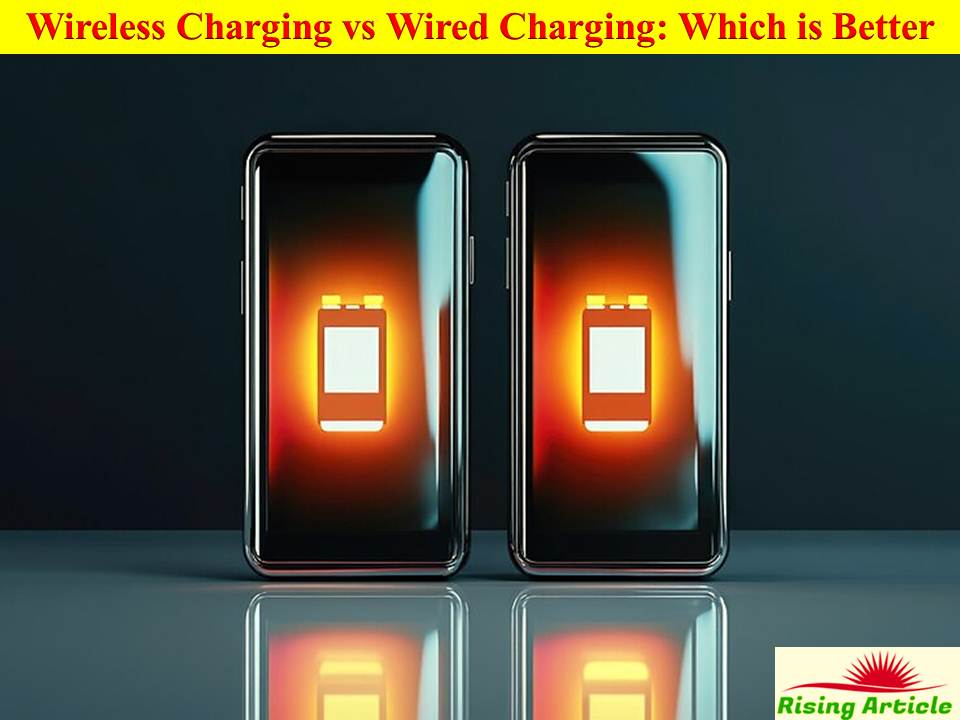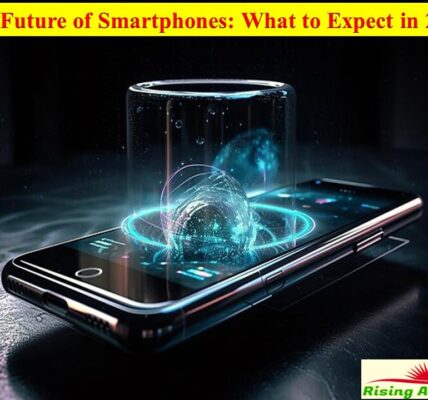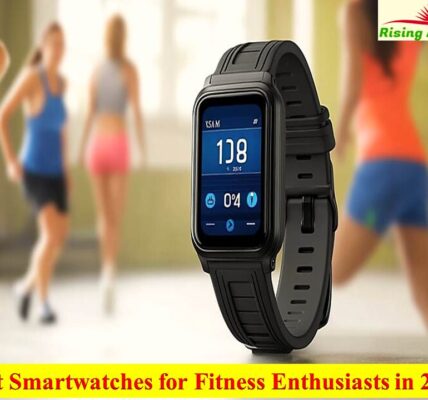The Charging Debate of 2025 ⚡📱
In today’s world, charging your smartphone has become an essential part of everyday life. But when it comes to charging your phone, there’s a debate that never seems to end: Which is better, wireless charging or wired charging? 🤔
With the rise of wireless charging, many people are asking whether this new technology is superior to the traditional wired charging method. While wired charging has been the standard for many years, wireless charging offers the allure of convenience and modern tech. But how do these two methods compare in terms of speed, efficiency, and overall user experience?
In this article, we’ll explore the pros and cons of wireless charging and wired charging to help you make the best choice for your charging needs in 2025. Let’s dive in! 🚀🔋
 📊 Wireless Charging vs Wired Charging: Quick Comparison
📊 Wireless Charging vs Wired Charging: Quick Comparison
| Feature | Wireless Charging ⚡ | Wired Charging 🔌 |
| Charging Speed | Slower, up to 15W | Faster, up to 45W or more |
| Convenience | Place and charge, no cables | Requires cable connection |
| Heat Generation | More heat buildup | Less heat generation |
| Compatibility | Requires wireless pad | Requires charging cable |
| Battery Health Impact | Can generate more heat, affecting battery life | Minimal impact if used properly |
| Portability | Highly portable, no cables | Less portable with cables |
🚀 Conclusion: Wired charging is still the faster option, but wireless charging offers convenience and ease of use. Let’s break down the advantages and disadvantages of each charging method.
️⃣ Wireless Charging: The Convenience of Cable-Free Power ⚡
✅ Pros of Wireless Charging:
✔️ Convenience – The biggest advantage of wireless charging is the convenience it offers. No need to plug and unplug cables every time you need to charge your phone. Just place your phone on a wireless charging pad, and it starts charging immediately.
✔️ Less Wear and Tear – Since there are no physical cables involved, there is less wear and tear on your charging ports, and you won’t need to worry about the cable getting damaged or breaking over time.
✔️ Clutter-Free Setup – With wireless charging, your desk or nightstand looks cleaner without the mess of cables. It offers a more aesthetic and minimalistic approach to charging.
✔️ Multi-Device Charging – Many wireless chargers can charge multiple devices at once, including your phone, smartwatch, and earbuds. This makes it an ideal solution for users with multiple devices.
❌ Cons of Wireless Charging:
❌ Slower Charging Speed – The main downside of wireless charging is that it is generally slower than wired charging. Wireless chargers typically provide 15W of power, while wired chargers can offer up to 45W or more, meaning your phone will take longer to charge wirelessly.
❌ Heat Buildup – Wireless charging can cause more heat buildup compared to wired charging. This heat can affect your phone’s battery health over time, especially if the charging pad or phone gets too hot.
❌ Compatibility Issues – Not all devices are compatible with wireless charging, and you may need to buy a special charging pad that matches your device’s charging standards.
💡 Best For: Users who prioritize convenience, clean setups, and want to charge multiple devices wirelessly at the same time.
️⃣ Wired Charging: Fast, Reliable, and Efficient 🔌
✅ Pros of Wired Charging:
✔️ Faster Charging Speeds – Wired charging is typically much faster than wireless charging. With fast charging capabilities ranging from 25W to 45W or even 100W in some devices, you can charge your phone to full capacity in under an hour. This is perfect for those in a hurry or needing a quick power boost.
✔️ Better Efficiency – Wired charging has a more efficient transfer of energy compared to wireless charging, meaning less power is lost in the process. You can expect your phone to be charged more efficiently and with fewer interruptions.
✔️ Less Heat – Because of its direct connection to your device, wired charging generates less heat than wireless charging, which is better for the long-term health of your battery.
✔️ Universal Compatibility – Wired chargers are universally compatible with most devices, as long as they use the standard USB or USB-C charging ports. This means you don’t have to worry about special charging pads or adapters.
❌ Cons of Wired Charging:
❌ Cable Clutter – The primary downside of wired charging is the mess of cables. You have to plug and unplug your phone every time you need a charge, and cables can become tangled, worn out, or damaged over time.
❌ Less Convenient – You can’t just place your phone down anywhere to charge it. You need to connect it to a charger every time, which can be a hassle if you’re charging multiple devices.
❌ Limited Portability – Cables are less portable compared to wireless charging pads. If you’re on the go, carrying cables can be inconvenient, especially when you have to carry extra adapters or power banks.
💡 Best For: Users who need fast charging, efficient power transfer, and minimal heat generation. Ideal for users with limited time or who rely on quick, daily charging routines.
📢 FAQs: Common Questions About Wireless Charging vs Wired Charging
1️⃣ Does wireless charging work as fast as wired charging?
🔋 No, wireless charging is generally slower than wired charging, though recent advancements have made wireless charging faster, with speeds now approaching 15W. Wired charging can offer up to 45W or more, making it much faster for charging your phone quickly.
2️⃣ Can wireless charging damage my phone’s battery?
⚡ Wireless charging can generate more heat than wired charging, and excessive heat can degrade the battery health over time. However, using a quality charging pad and ensuring your device doesn’t overheat will prevent this issue.
3️⃣ Is wireless charging better for my phone’s battery?
🔋 Not necessarily. Wired charging is more efficient and causes less heat buildup. However, wireless charging offers more convenience. For battery health, it’s important to avoid overcharging and heat buildup with both methods.
4️⃣ Can I charge multiple devices with wireless charging?
💡 Yes! Many wireless charging pads can charge multiple devices simultaneously, including smartphones, smartwatches, and wireless earbuds. This is one of the biggest advantages of wireless charging over wired methods.
5️⃣ Which charging method is better for long-term use?
🔌 Wired charging tends to be more efficient and is generally better for battery health in the long term. However, if you use quality wireless pads and avoid excessive heat buildup, wireless charging can still be a convenient and effective solution.
🎯 Conclusion: Which Charging Method is Right for You? 🔌⚡
Both wireless charging and wired charging have their advantages and disadvantages. If you prioritize speed and efficiency, wired charging is the way to go, offering faster charging speeds and better battery health. On the other hand, if convenience and wireless freedom are more important to you, wireless charging provides ease of use with a cleaner setup.
💡 Best for convenience and multi-device charging? Choose wireless charging.
💡 Best for fast charging and efficient power transfer? Opt for wired charging.
Read More Article:-
- The Future of Smartphones: What to Expect in 2030 📱🔮
- Best Budget Phones Under $500 in 2025: Affordable Yet Powerful Options 📱💸
- How to Increase Your Smartphone’s Battery Life: Tips & Tricks for 2025 📱🔋
- Foldable Phones: Are They Worth the Hype? 📱🤔
- iPhone 16 vs Samsung Galaxy S25: Which One to Buy? 📱🤔
- Best Smartphones of 2025: A Complete Comparison 📱🚀




